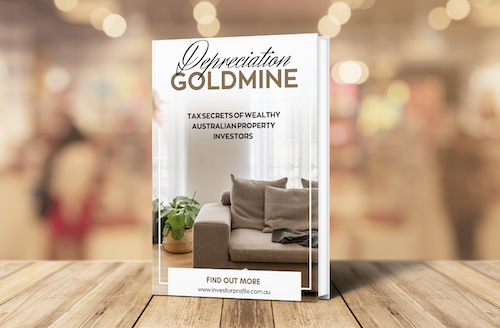Guide to Buying Your Second Investment Property
After successfully rentvesting your first property, many investors start planning their next move. Expanding your portfolio involves a clear financial strategy, smart use of equity, and understanding all available financing options.
This practical guide outlines how to move forward with your second investment, complete with tax forecasts and risk management tips specifically for the Australian market.
1. Assess Your Current Equity & Cash Flow
Equity in Your First Investment
To determine the usable equity, consider these figures:
- Property Value: $800,000
- Loan Balance: $520,000
- Usable Equity: (800,000 × 80%) – 520,000 = $120,000
Cash Flow Overview
Using your rental data, the financial summary looks like this:
- Annual Rental Income: $53,560
- Annual Expenses: $50,333
- Net Cash Flow: $3,227 positive

Discover the #1 tax secret wealthy Australian property investors use to grow their portfolios faster — even in a high interest rate environment.
- Learn how to turn wear and tear into wealth
- See real examples of $15,000+ first-year deductions
- Understand how to structure your purchases for maximum after-tax ROI
Download Your Free Wealth Building Guide
This ebook reveals how to legally slash your tax bill while building long-term wealth through property. Learn the strategies savvy investors use to gain an edge — even before settlement.
- Maximise tax deductions and improve cash flow
- Understand Division 40 vs 43 and how to claim both
- Position yourself to reinvest and scale faster
2. Financing Options for Your Next Property
Option 1: Refinance to Access Equity
Increase the loan on your first property to unlock equity for your next deposit.
Benefits: No cash deposit required, plus interest on the investment loan is tax-deductible.
Risk: Involves taking on a higher debt level. Lender’s Mortgage Insurance (LMI) kicks in if borrowing exceeds an 80% Loan-to-Value Ratio (LVR).
Option 2: Futurerent or Rental Advance
Access up to two years of rent upfront with this method. It's an excellent option for those who need fast funding without impacting their credit score.
Option 3: Low-Deposit Investment Loan
Borrow up to 95% of the property value and make a smaller cash deposit. Beware that this often comes with higher interest rates and LMI premiums.
3. Second Property Financial Forecast
Assume you’re targeting a $700,000 property with a 20% deposit. Here’s a snapshot:
| Metric | Amount |
|---|---|
| Loan Amount | $560,000 |
| Interest (6.01%) | $33,656/year |
| Rental Income | $31,200/year |
| Other Expenses (rates, etc.) | $10,000/year |
| Net Cash Flow | –$12,456/year |
Negative Gearing Tax Benefit
- Salary: $80,000
- Rental Loss: –$12,456
- Taxable Income: $67,544 resulting in an estimated tax saving of about $4,300.
Equity Growth Forecast
With an assumed annual capital growth of 4%:
$700,000 × 4% = $28,000 gain in Year 1.
4. Tax Benefits of a Second Property
- Interest Deductibility: Applicable on both loans.
- Depreciation Claims: Capital works at 2.5% per annum in addition to eligible asset deductions.
- Six-Year CGT Rule: Maintain exemption on your first property if you move out within six years.
5. Managing Risk: 4 Smart Tips
- Maintain a financial buffer: Aim to keep 3–6 months' worth of mortgage repayments in reserve.
- Diversify Geographically: Consider suburbs in cities like Brisbane or Perth to spread risk.
- Fixed vs. Variable Rates: Choose a rate based on your cash flow stability and future forecasts.
-
Plan for various scenarios:
Best case: 6% growth could deliver a $42,000 equity gain per year.
Worst case: A vacancy or 0% growth might result in a net loss of approximately $15,000 per year.
Case Study: Portfolio Growth Over Time
| Year | Properties Owned | Equity Growth | Net Cash Flow |
|---|---|---|---|
| 1 | 2 | $28,000 | –$9,229 |
| 5 | 4 | $250,000+ | $5,000+ |
Final Recommendations
- Utilize your equity: Look into refinancing or Futurerent options rather than immediately using cash.
- Focus on high-yield suburbs: Areas like Brisbane, Adelaide, and Perth show promising potential.
- Consult the experts: Engaging a mortgage broker and tax advisor can ensure you structure your investments properly.
Ready to scale up?
Chat with our team to review your equity, run different scenarios, and strategize your next purchase.


